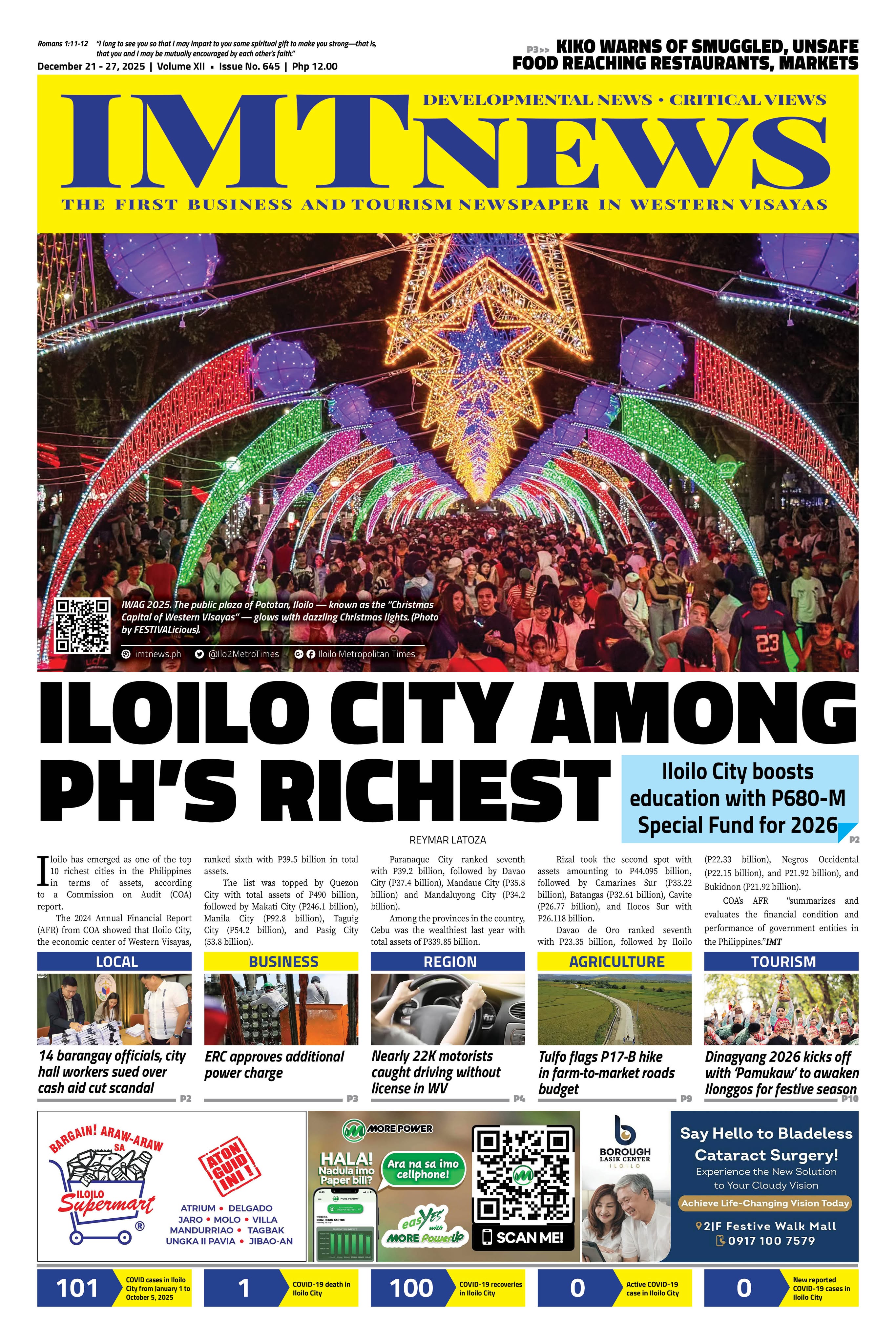The Department of Tourism (DOT-6) positions the region at the forefront of the development of the Slow Food Travel Program in the country.
Western Visayas, known for its rich gastronomic heritage and biodiversity, has embraced the philosophy of Slow Food as a cornerstone of its tourism strategy.
In a message during the official launch of Slow Food in Western Visayas, Food and Rural Tourism, DOT-6 Regional Director Crisanta Marlene Rodriguez highlighted the goal of making Western Visayas a Slow Food Travel Destination.
“We aspire to make Western Visayas a Slow Food Travel Destination where good, clean, and fair food takes center stage in the tourism experience,“ she said.
The Slow Food movement is a global grassroots organization founded in 1989 that advocates for the preservation of local food cultures and traditions, promoting good, clean, and fair food.
It emphasizes the importance of consuming high-quality and nutritious food by promoting a shift away from highly processed and fast foods.
DOT-6 is developing a travel itinerary that seeks to provide tourists with an immersive experience that goes beyond the scenic landscapes, focusing on the heart of local communities and their culinary traditions.
“We celebrate the gastronomic delights that are distinctive to each province and driven by a vision where tourists not only experience the beauty of our landscape but also have the opportunity to immerse themselves in the heart of our local communities,” expressed Rodriguez.
The Slow Food Travel Program aims to raise awareness about the importance of preserving culture and heritage through food.
The initiative brings together farmers, butchers, herders, artisans, and chefs, encouraging active participation to showcase the region’s unique biodiversity.
The DOT started this journey in 2020, conducting a mapping project that identified 161 products integral to the Slow Food initiative.
Rodriguez emphasized that slow food adheres to the principles of being good, clean, and fair.
“It is well-prepared, safe to consume, environmentally friendly, and supports local farmers,” she added.AAL/ED/PIA 6







